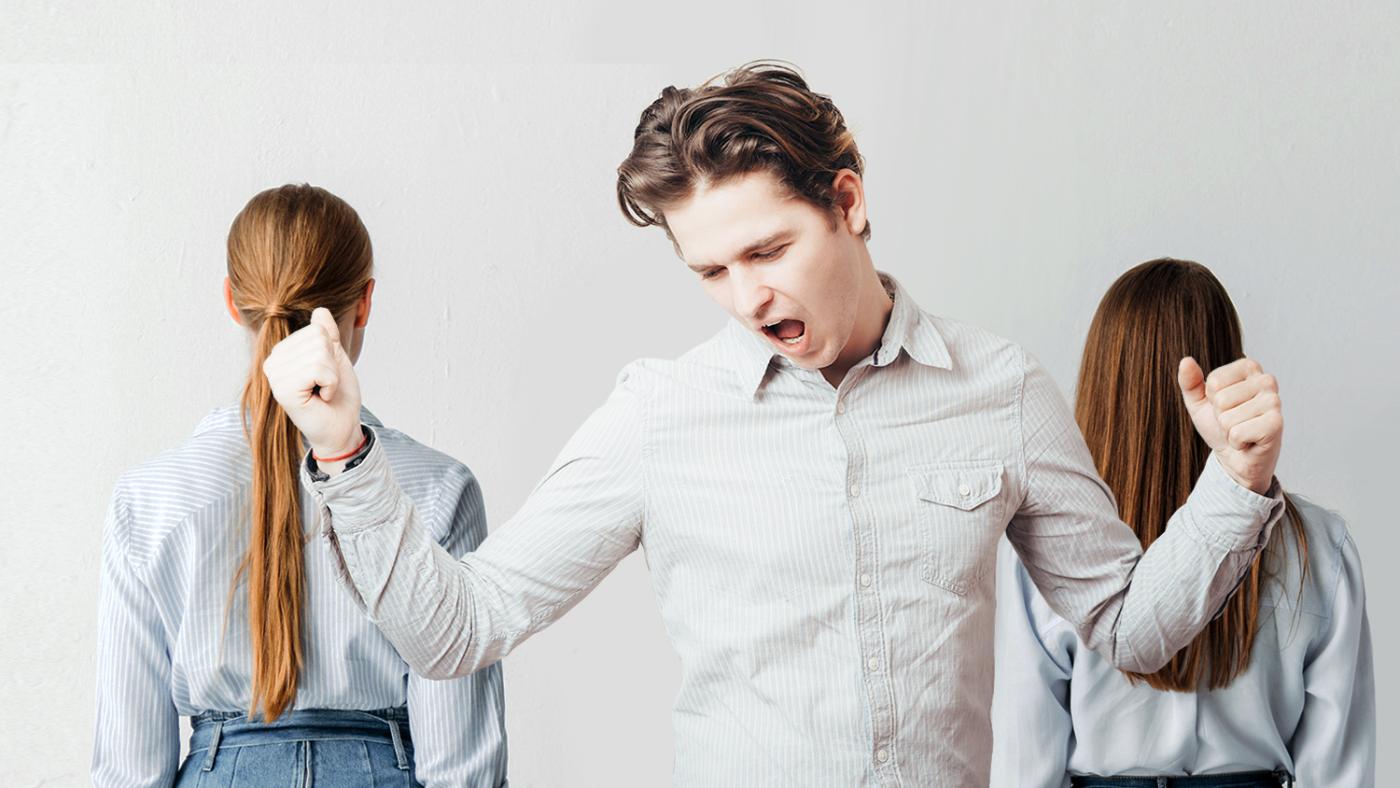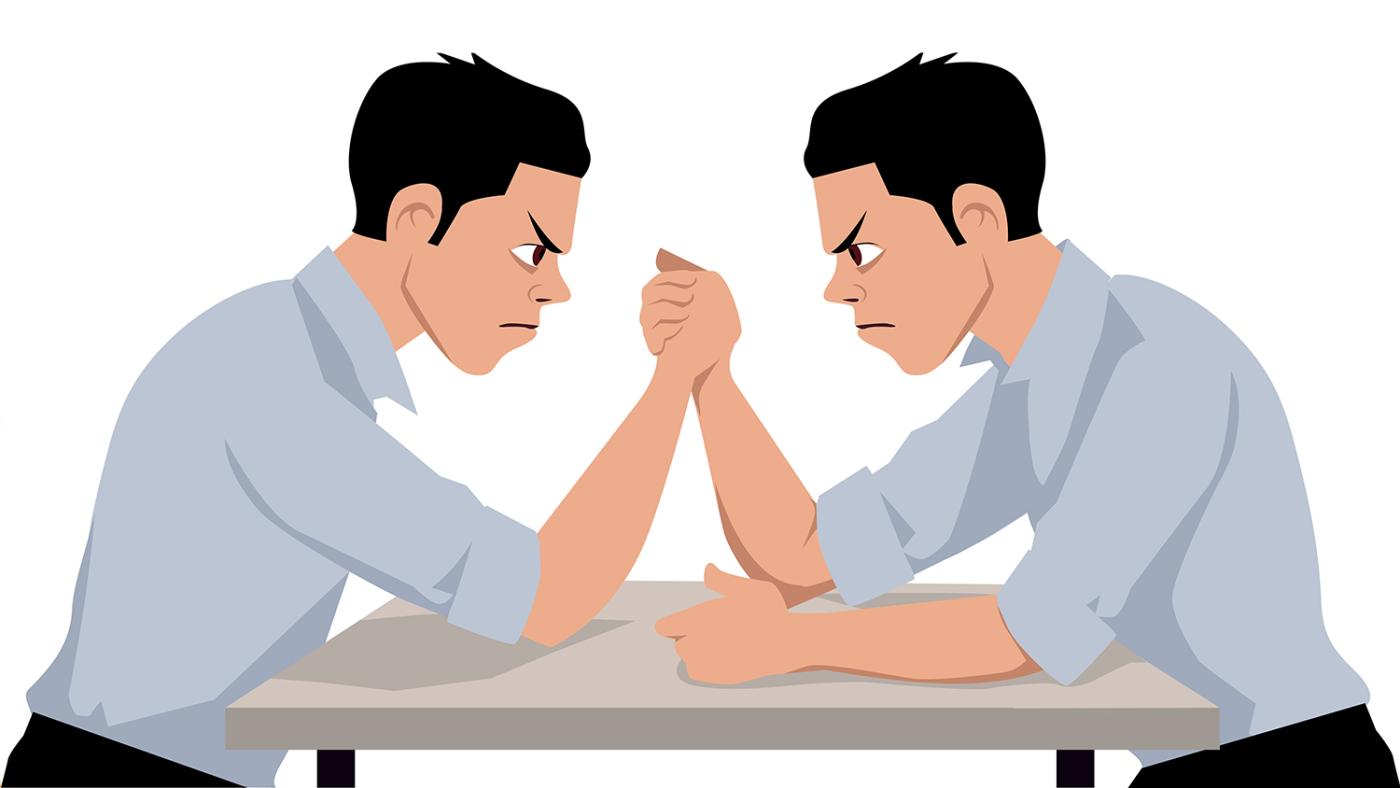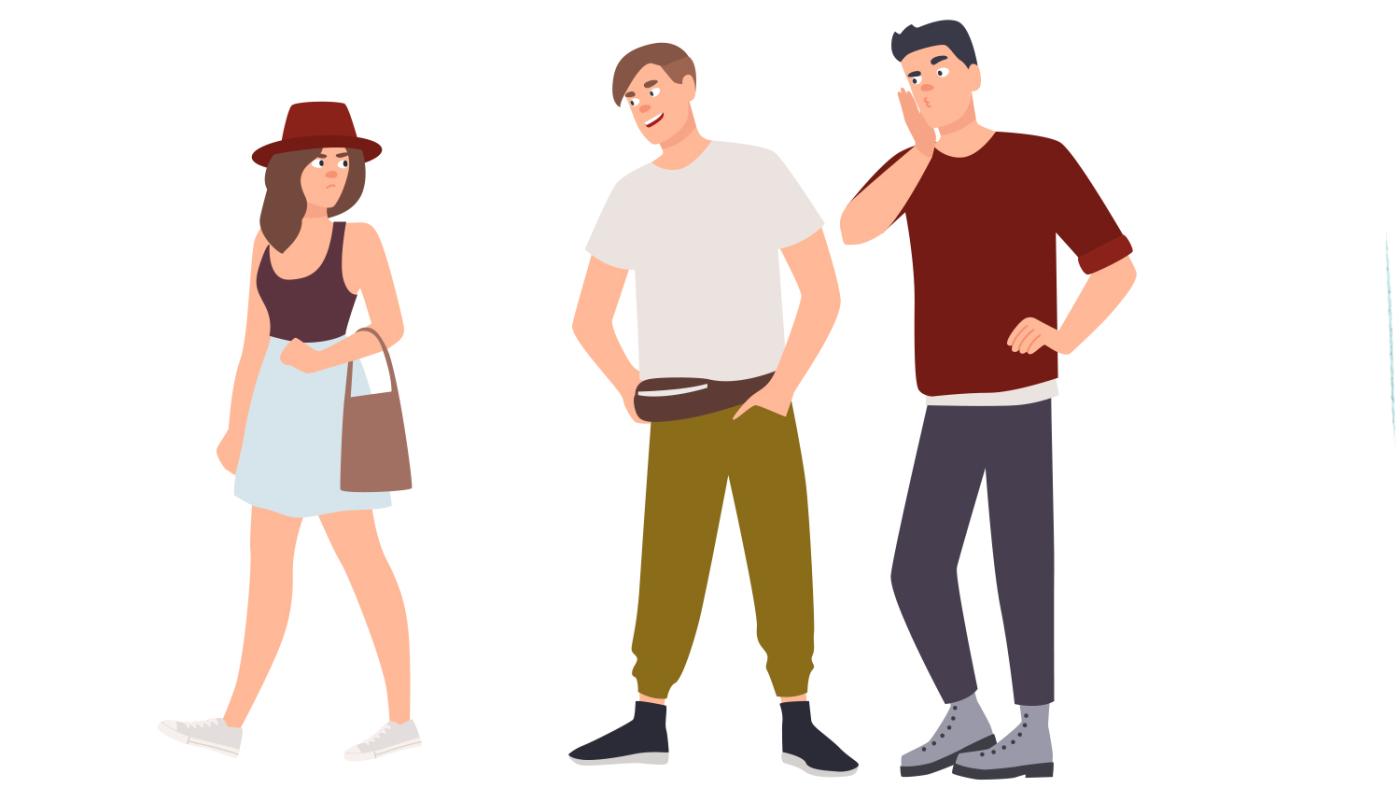Research sheds light on harmful practices
Misogynistic language still the norm in Dutch student associations

Iris Huis was the researcher commissioned to conduct the study. The results show that men in student associations support each other, but there is also a "tough" atmosphere as the associations are very hierarchical. Hazing and status differences make people feel superior or inferior to others, depending on their year, house, or club. This is an omnipresent culture.
Misogynistic language is part of that "tough" atmosphere, as is the peer pressure to consume alcohol and have sex. Men often check whether others have had sex and there is a lot of pressure to "score". The standard is having sex without a condom unless the woman asks for it.
In addition, it is difficult for LGBTQIA+ members to come out of the closet, as jokes about gay people are common, as is using terms like "sissy" or the Dutch word homo as expletives. Trans and non-binary people have an even harder time being themselves: Dutch student associations often promote the separation of sexes, keeping them from getting in touch with different perspectives.

Photo: 123rf
Masculinity
“I was not surprised by the findings, they only confirmed what I already thought," says Willy van Berlo, programme manager on sexual violence at Rutgers. "What I find particularly striking is that these young men do not see it themselves. Traditional student associations must deal with extremely unequal dynamics between men and women, younger and older students, and clubs. Yet they don't associate that culture with abusive behaviour, which is strange. Even when students do see a connection, they believe they are not part of it, they don't think they're doing anything wrong themselves.”
Rutgers decided to commission this study following the many reports by Dutch media about the prevalence of abusive and misogynistic behaviour inside traditional student associations. Despite the media coverage, no study had ever been made into how members perceive these matters. Van Berlo: “Rutgers is concerned with the prevention of sexually abusive behaviour in a broad sense. Cultural change is one part of it. In these associations, both men and women still hold views that normalise, trivialise, deny and ignore such behaviour.”
“We also had enough reason to suspect that associations do not regard women positively and do not think constructively about masculinity. We wanted to see what things are like from the inside, so we could gain more insight into where abusive behaviours and statements come from.”
Reflection
In recent years, there's been a noticeable change going on in Dutch student associations. It is becoming increasingly normal to ask someone for consent before kissing them, for example, and men are generally positive about associations' efforts to address the topic of consent. Many men told the researchers they would like their associations to promote a conversation about sexism and sexual abuse. However, according to the study, the same men also hold a stereotypical image of perpetrators, and they do not recognise themselves in that image. There is an idea that perpetrators are always others. According to Rutgers, open conversations about these topics could contribute to a better understanding and a more honest self-image among men.

Photo: 123rf
Men seem to have two faces
Anne (26), recently joined a traditional student association as a reunion member. She can relate to many of the findings. “Drinking a lot and not whining. That is the image I have of the men in my association. Those who drink less or don't drink are judged harshly. You have to be at the parties often, it’s a problem if you don’t show up often enough. It’s a lot about status and appearance. Are you in the cool club or not? In the cool fraternity or not? That’s how you are judged.”
She also confirms that misogynistic language is common. “It’s not cool if you don’t use sexist language. Men don't dare to call each other out because they are afraid of being left out. They mostly use sexist language among themselves and stop when a woman shows up. It's as if they had two faces. For example, I once heard someone say: "I just went out with my wife, so now I want to fuck someone hot." As a woman, that scares me. So, that’s how people talk about me when I’m not there? It's very objectifying, very aggressive. My first boyfriend also changed a lot when he joined the university, I was shocked at how quickly young men adopt misogynistic language and behaviour. You’re almost trained to be like that.”
She’s no stranger to abusive behaviour either. “They are pressured to score, whatever the cost. I’ve had men cross my boundaries and not care at all about what I wanted. I've experienced someone forcing it on me, and I was no exception. It is really weird if you don't 'succeed' on your date. I once asked if I could bring a girlfriend to a gala because I had just broken up with my boyfriend at the time, and that wasn't allowed. It had to be a single man. I can also attest that sex without a condom is one hundred percent the standard. Men just don't feel like it, they don't like it, or at least they're never the ones who initiate it."
Anne also confirms the double standards regarding homosexuality. "It's very ambiguous. If you ask men about it, they say they have no problem with someone being gay. However, they constantly make jokes about it. The impact of homophobic jokes is not recognised. Heteronormativity is very strong in the associations. The fact that I wasn't allowed to bring a girlfriend to an event is an example of that. Why isn't that allowed? That also sends a signal: 'hey, you're different.'"
Attention to the subject
Most associations strive to prevent sexually abusive behaviour during introduction weeks, but those efforts decrease after that. Men indicate a need for more accessible, in-depth conversations about the topic, preferably held in small groups – over a drink, for example. The men heard in the study are generally positive about the attention being paid to this subject, but they also say that it sometimes "gets on their nerves."
Anne is not shocked by this statement. “It sounds pretty typical. Many men think that they are already doing well, so they either grow tired of the subject quickly or argue they have good intentions. I believe that, but do you also act accordingly? They do not dare to look at themselves critically. That honesty is missing.”

Photo: 123rf
Measures and recommendations
In the report, the researchers make recommendations to student associations based on their findings. These include raising awareness, emphasising the importance of consent, promoting group cohesion without the use of misogynistic language, preventing symptom control, and focusing on cultural change.
It is unclear which of these initiatives is most effective. Van Berlo, from Rutgers, explains: “It remains an advice, we do not know for sure what is effective. first, we'd have to research which measures reduce sexual and sexist abuse. One thing is for sure, however: cultural change matters. We hope that students are smart enough to understand that some of these norms and values are harmful and that you can change them without having to throw all traditions away. It would already help to have a culture in which people can address each other about inappropriate behaviours instead of encouraging them.”
“We are not going to tell you how things should or should not be done. We would just like to emphasise how we can all interact with each other a little better. The point is that treating people with respect will be better for everyone, everyone can understand that. However, we must also make it very clear that sexism, sexual violence and calling women things like 'sperm bucket' are unacceptable. We are working on cultural change in a broad sense, as this has to change everywhere. If our society indicates that these behaviours are unacceptable, then we hope this will reflect upon student associations."